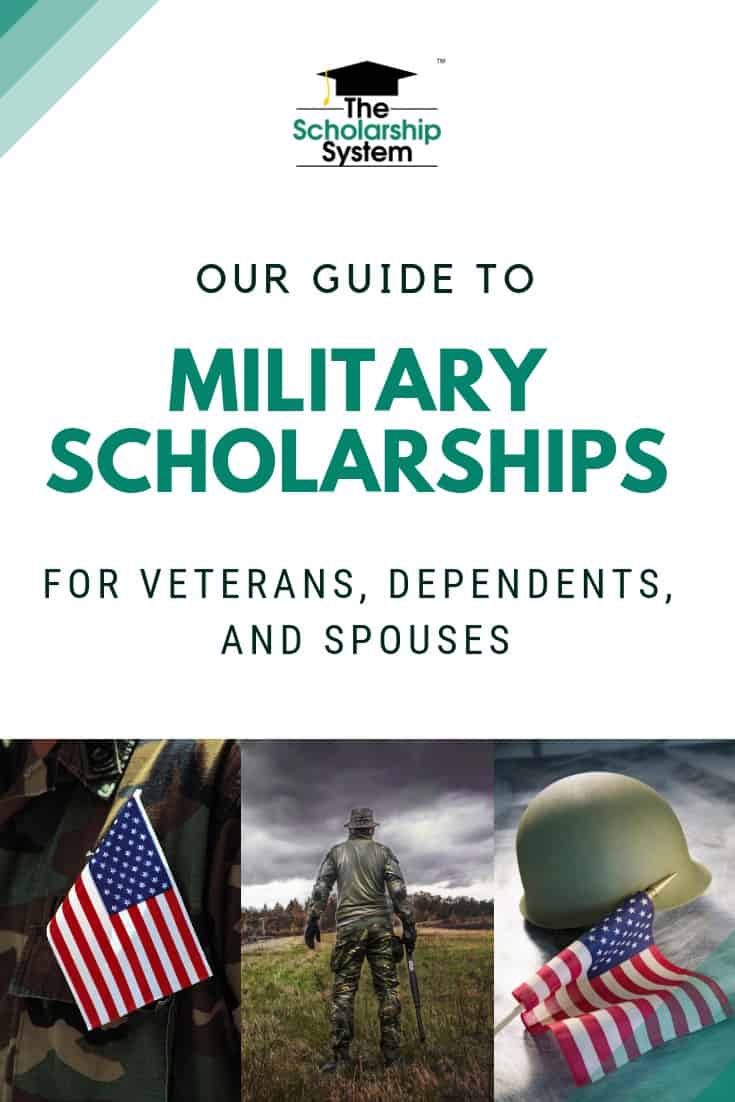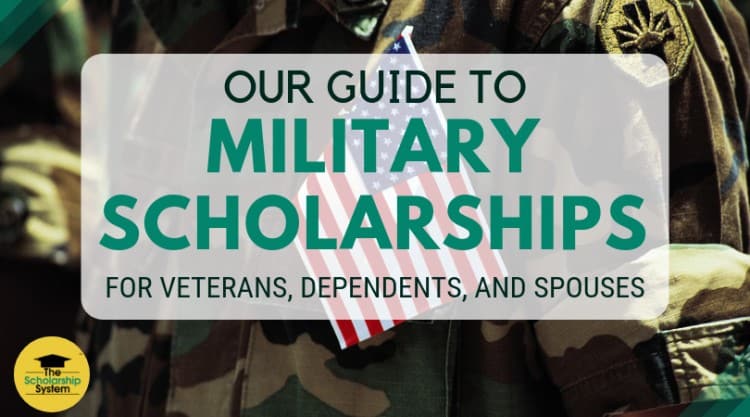My Path to a Debt-Free Degree: How Military Scholarships Changed Everything
Hey there! Let me tell you a story, my story, about how I ended up going to college without drowning in student loan debt. Because, let’s be honest, college tuition these days can feel like staring up at Mount Everest. For years, I just assumed higher education was going to come with a hefty price tag, a financial burden that would follow me for decades. But then, something clicked. I stumbled upon military scholarships, and suddenly, that mountain didn’t look so impossible to climb.
If you’re like I was – dreaming of college but dreading the cost – then stick around. I’m going to walk you through what I learned, what these scholarships are all about, and why they might just be the answer you’re looking for.
The "Aha!" Moment: When College Bills Felt Like a Nightmare
I remember it like it was yesterday. I was in high school, and all my friends were talking about which colleges they were applying to, what majors they’d pick. Me? I was mostly thinking about how on earth my family and I would afford it. My parents worked incredibly hard, but the numbers for tuition, room, board, books – they were just mind-boggling. I felt a knot in my stomach every time I thought about it. Would I have to settle for a community college, even though I dreamed of a four-year university? Would I graduate with so much debt I couldn’t even start my adult life?
One evening, my dad, bless his heart, sat me down. "Have you ever thought about the military?" he asked. My first thought was, "Uh, no? I’m going to college!" But he wasn’t talking about enlisting right out of high school. He started telling me about programs that could pay for my college while I prepared for a career as an officer. My ears perked up. "Military scholarships?" I’d never heard of them. It sounded too good to be true.
That conversation was my turning point. It opened up a whole new world of possibilities that I honestly hadn’t even considered.
What Exactly Are These "Military Scholarships"?
Okay, so "military scholarship" isn’t just one thing. It’s an umbrella term for several amazing programs designed to help students like you and me get a top-notch education in exchange for a commitment to serve as an officer after graduation. The big players you’ll hear about are:
1. ROTC Scholarships (Reserve Officer Training Corps)
This is the path I ended up taking, and it’s super popular. Imagine going to a regular college – a state university, a private school, whatever – but alongside your normal classes, you also take a few military science courses, participate in physical training a few mornings a week, and attend leadership labs. That’s ROTC in a nutshell.
- How it works: The military (Army, Navy, Air Force, or Marines – yes, the Marines have Navy ROTC!) offers scholarships that can cover your tuition, pay for your books, and even give you a monthly stipend for living expenses. In return, you commit to serving as an officer for a few years after you graduate and earn your commission.
- Flexibility: You get to pick from a wide range of colleges that have an ROTC program. This means you can still get that traditional college experience, join fraternities or sororities, play sports, and study almost any major you want, all while developing leadership skills.
- The Commitment: After you graduate, you’ll commission as a Second Lieutenant (Army/Air Force) or an Ensign (Navy/Marines) and serve for typically four years on active duty.
2. Service Academy Scholarships (Army, Navy, Air Force, Coast Guard, Merchant Marine)
These are arguably the most prestigious and competitive. Think of places like West Point (Army), Annapolis (Navy), or the Air Force Academy. These aren’t just colleges; they’re unique military institutions.
- How it works: If you get accepted to a Service Academy, your education is completely free. I mean, absolutely everything: tuition, room, board, medical care, and you even get paid a small salary!
- The Experience: Life at an Academy is intense and structured. You’re a cadet or midshipman from day one, wearing a uniform, following a strict schedule, and undergoing rigorous academic and military training. It’s a fantastic experience for those who thrive in a highly disciplined environment and know they want a full-time military career right after high school.
- The Commitment: Upon graduation, you’ll commission as an officer and serve for at least five years on active duty, often longer.
3. Other Avenues (Briefly Mentioned)
While ROTC and Service Academies are the primary ways to get a pre-service scholarship, it’s worth noting there are other educational benefits once you’re already in the military (like the GI Bill for veterans and their dependents, which can cover college costs later on). But for someone looking to get their degree paid for before serving, ROTC and the Academies are your main targets.
Is a Military Scholarship Right for You? My Honest Take
This is a big question, and it’s one you really need to think about. For me, it was a perfect fit, but it’s not for everyone.
The Upsides (Why I Loved It):
- Zero Debt: Seriously, this was the biggest win. I graduated with a degree and no student loans. That freedom allowed me to focus on my career and save money from day one. It’s a game-changer.
- Guaranteed Job: After college, I wasn’t scrambling for interviews. I had a clear path, a job waiting for me as an officer. That security was incredibly comforting.
- Leadership Skills: ROTC pushed me out of my comfort zone. I learned how to plan, how to lead a team, how to make decisions under pressure, and how to communicate effectively. These aren’t just "military" skills; they’re life skills that are valuable in any career.
- Unique Experiences: From field training exercises to physical challenges, I did things most college students never get to experience. It built confidence and gave me some truly unforgettable memories.
- Travel & Adventure: Once commissioned, the military offers incredible opportunities to live and work in different parts of the country and even the world.
The Downsides (Things to Consider):
- The Commitment: This isn’t just about getting free money; it’s about making a serious commitment to serve your country. This means potentially deploying, moving frequently, and facing challenges unique to military life. It’s not a decision to take lightly.
- Discipline & Structure: Military life, even in college through ROTC, is disciplined. You’ll have early mornings, physical training, and expectations for appearance and conduct. If you prefer a completely free-spirited college experience with no rules, this might feel restrictive.
- Physical Demands: You’ll need to pass physical fitness tests and maintain a certain level of fitness. If you’re not into being active, this could be a hurdle.
- Less Control Over Your Future (Initially): While you have a guaranteed job, where you go and what you do after commissioning can sometimes be decided by the needs of the service, not just your personal preference.
For me, the benefits far outweighed the challenges. It truly shaped me into the person I am today.
My Application Journey: What to Expect
Applying for a military scholarship, especially ROTC or a Service Academy, is a bit different from applying for a regular college scholarship. It’s a comprehensive process, and it takes time and effort. Here’s a quick rundown of what I went through and what you should prepare for:
- Start Early: Seriously, don’t wait until your senior year. Junior year is a great time to start researching and preparing. Some applications open in the summer before your senior year.
- Academics Matter: Good grades are crucial. They want to see that you can handle college-level coursework. Focus on your GPA, especially in challenging subjects.
- Standardized Tests: Your SAT or ACT scores are important. Study hard and aim for competitive scores.
- Extracurricular Activities: They’re looking for well-rounded individuals and leaders. Get involved in sports, clubs, community service, student government, or anything that shows initiative and teamwork.
- Physical Fitness: You’ll likely have to pass a physical fitness test. Start training early! This usually involves push-ups, sit-ups, and a run.
- Interviews: You’ll probably be interviewed by an ROTC cadre member or an Academy liaison officer. This is your chance to show your personality, motivation, and leadership potential. Be prepared to talk about why you want to serve.
- Essays & Recommendations: Just like regular college applications, you’ll write essays (be authentic!) and need letters of recommendation from teachers or mentors.
- Medical Exam: You’ll go through a thorough medical evaluation to ensure you meet the physical standards for service.
It felt like a lot at the time, but looking back, every step was worth it.
Life with a Military Scholarship: My College Experience
When I got that acceptance letter for my ROTC scholarship, I was ecstatic! It meant I could go to my dream university. But college life with an ROTC scholarship isn’t just about classes and parties.
My typical week looked something like this:
- Early Mornings: A few times a week, I’d be up before dawn for physical training (PT). Running, circuit training, obstacle courses – it was tough, but it built camaraderie and kept me in shape.
- Military Science Classes: These were usually once a week, where we learned about military history, leadership principles, ethics, and tactics.
- Leadership Labs: These were hands-on sessions, often outdoors, where we practiced land navigation, squad movements, and leadership skills. It was like a real-life strategy game.
- Summer Training: Each summer, there was a major training event, like Advanced Camp for Army ROTC, where we put all our learned skills to the test in a simulated combat environment. It was challenging, but an incredible learning experience.
Balancing academics, ROTC duties, and a social life definitely required good time management. There were moments when I felt stretched thin, but the support from my fellow cadets and the cadre (the military instructors) was invaluable. We were a team, pushing each other to succeed.
The Payoff: Beyond Graduation
When I walked across that stage to get my diploma, it wasn’t just a piece of paper. It was a symbol of years of hard work, discipline, and commitment. And the best part? No student loan debt.
Right after graduation, I participated in my commissioning ceremony, raising my right hand and taking the oath to serve as an officer. It was a profoundly proud moment. My military scholarship had not only paid for my education but had also given me a clear career path.
My first few years as an officer were a whirlwind of new experiences, challenges, and immense growth. The leadership skills I developed in ROTC were put to the test daily. I was responsible for people, equipment, and missions. It wasn’t always easy, but it was incredibly rewarding.
Even now, years later, the benefits continue. The veteran status opens doors, the leadership experience is highly valued in the civilian job market, and the connections I made are lifelong.
My Final Thoughts & Encouragement
If you’re reading this, and the idea of a debt-free education sounds appealing, please, do yourself a favor and explore military scholarships. It’s not just about money; it’s about building character, gaining invaluable skills, and serving your country.
It’s a big decision, one that requires careful thought and a willingness to commit. Talk to recruiters, talk to current ROTC cadets, talk to officers, visit a Service Academy if you can. Gather all the information you need.
For me, choosing a military scholarship was one of the best decisions I ever made. It gave me an education, a career, and a purpose, all without the crushing burden of student loans. It’s a challenging path, yes, but it’s also one filled with incredible opportunities and a chance to truly make a difference. Who knows, maybe it’s the right path for you too. Good luck!



